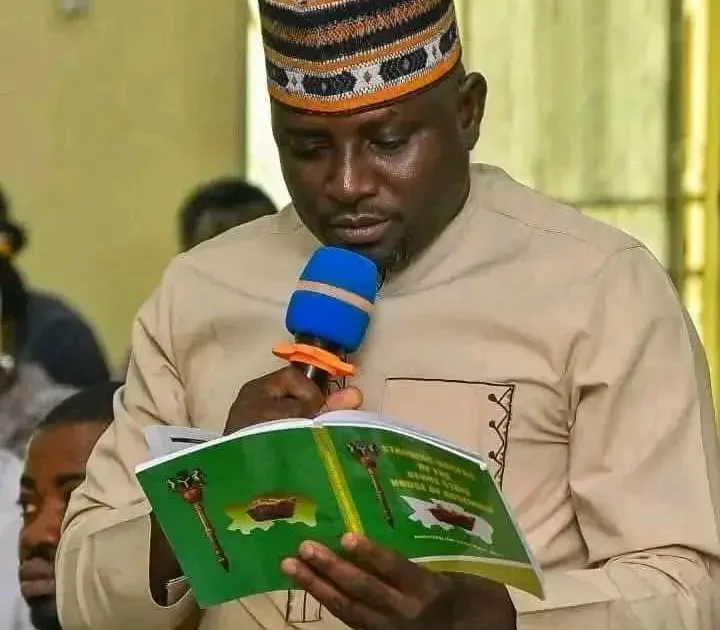The Benue State House of Assembly witnessed a dramatic shift in power on Sunday, August 24, 2025, as Alfred Emberger ascended to the Speakership following the abrupt resignation of his predecessor, Aondona Dajoh. This change in leadership culminated from a series of escalating tensions between the legislative and executive branches of the state government, highlighting a power struggle that had been brewing for some time. Emberger, a known ally of Governor Hyacinth Alia, had been among a group of lawmakers suspended just days prior for their unsuccessful attempt to oust Dajoh. This rapid turn of events underscores the volatile political landscape within the state.
The conflict began with Dajoh’s refusal to acknowledge official communications from Governor Alia, signaling a breakdown in communication and cooperation between the two branches of government. This initial act of defiance set the stage for a series of retaliatory actions that further exacerbated the existing tensions. The disagreement stemmed from the Assembly’s suspension of several key government officials, including the Chairman of the State Universal Basic Education Board, the Chairman of Otukpo Local Government Area, and the Executive Secretary of the State Lottery Board. Governor Alia rejected these suspensions, further fueling the discord between the executive and legislative arms.
In response to the Governor’s rejection, the Assembly retaliated by refusing to screen Alia’s commissioner-nominees, effectively paralyzing the appointment process. This tit-for-tat exchange escalated the political standoff, with each branch attempting to assert its authority. Although Alia eventually conceded to the suspensions, he reduced the duration from the Assembly’s recommended six months to just one month, a move that likely did little to appease the lawmakers. Furthermore, the Assembly’s disqualification of two of the Governor’s eight commissioner-nominees during the screening process further underscored the strained relationship.
The turning point in this power struggle seems to have occurred behind the scenes, with reports suggesting that several lawmakers who initially supported Dajoh switched their allegiance after meetings with government officials at the Government House. This shift in support significantly weakened Dajoh’s position, leaving him vulnerable to impeachment proceedings. Faced with the imminent threat of removal, Dajoh chose to resign, paving the way for Emberger’s swift ascension to the Speakership.
The process of Emberger’s appointment unfolded rapidly during an emergency plenary session presided over by Deputy Speaker Lami Danaldi-Ogenyi. The suspension of Emberger and the three other lawmakers was lifted, a motion swiftly passed by the House. Following their reinstatement, Emberger was nominated for the Speakership, a nomination that went unchallenged. With no other candidates put forward, Emberger was promptly sworn in by the Clerk of the House, marking a decisive victory for the Governor’s camp.
In his acceptance speech, Emberger struck a conciliatory tone, praising his predecessor’s service while emphasizing his commitment to inclusive leadership. He pledged to foster a harmonious relationship between the legislative, executive, and judicial branches of government while upholding the principle of separation of powers. This carefully crafted message aimed to project an image of stability and cooperation following the tumultuous events leading up to his appointment. Dajoh, in his resignation letter, also emphasized the importance of the state’s interests, suggesting a desire to avoid further political turmoil. The swift and seemingly coordinated nature of the transition suggests a concerted effort to restore order and stability within the Benue State government. The long-term implications of this power shift remain to be seen, but the events of this week have undoubtedly reshaped the political landscape of Benue State.


